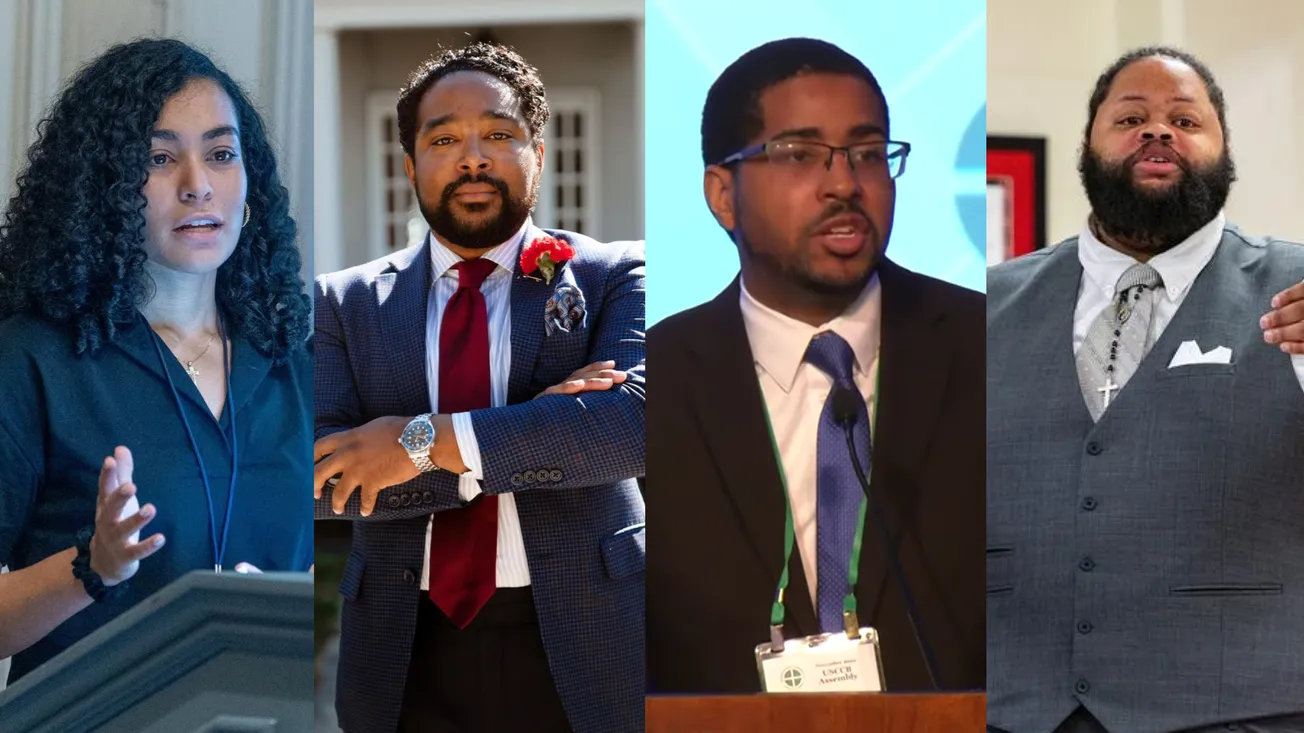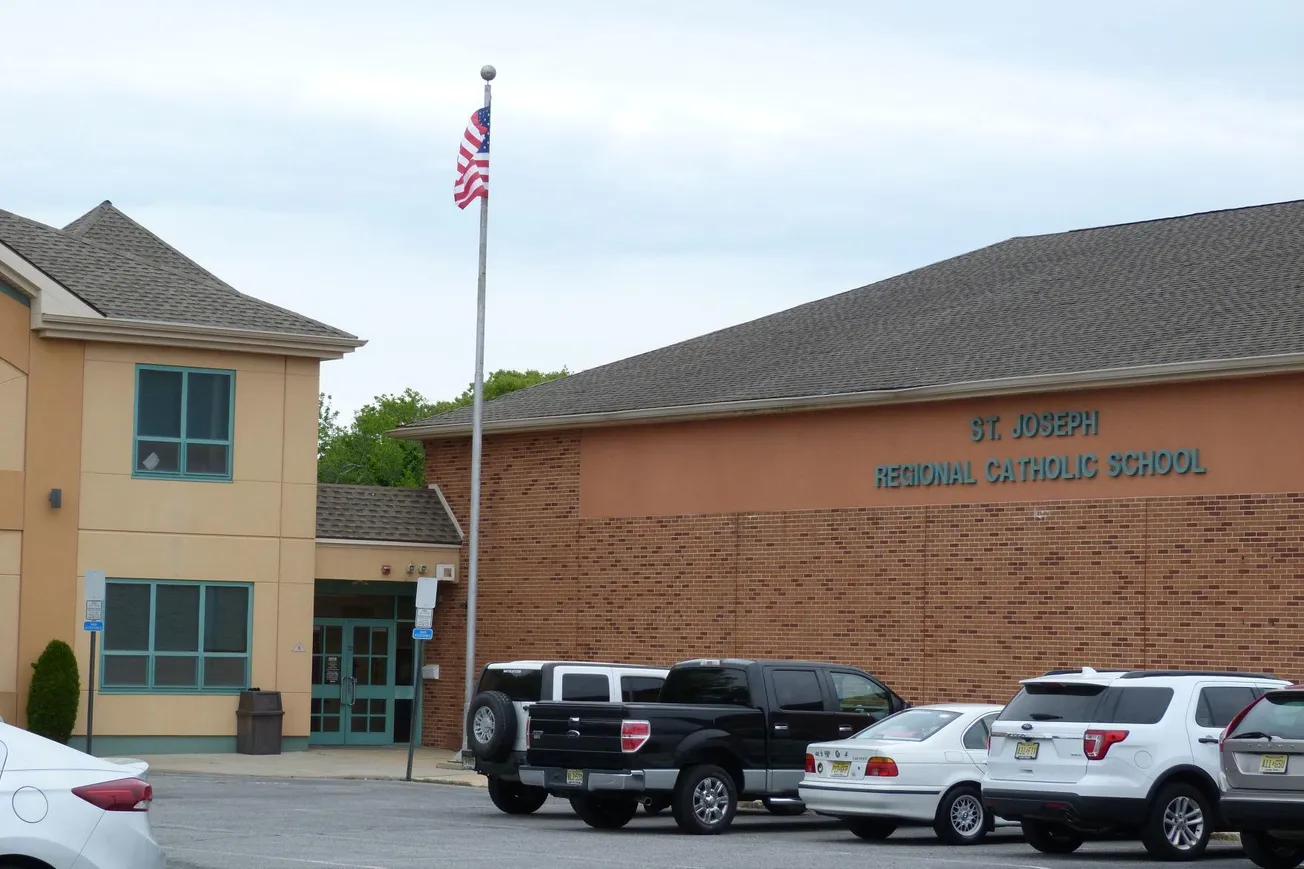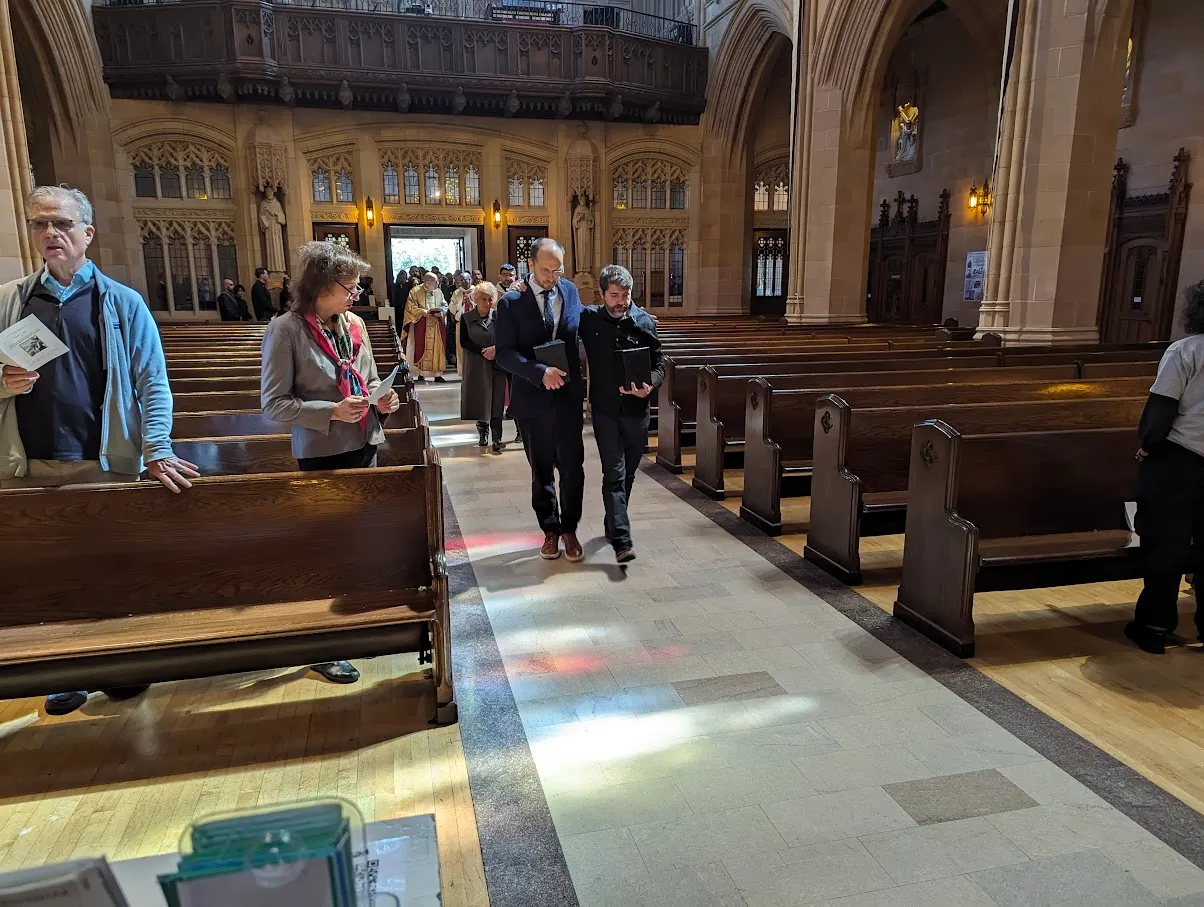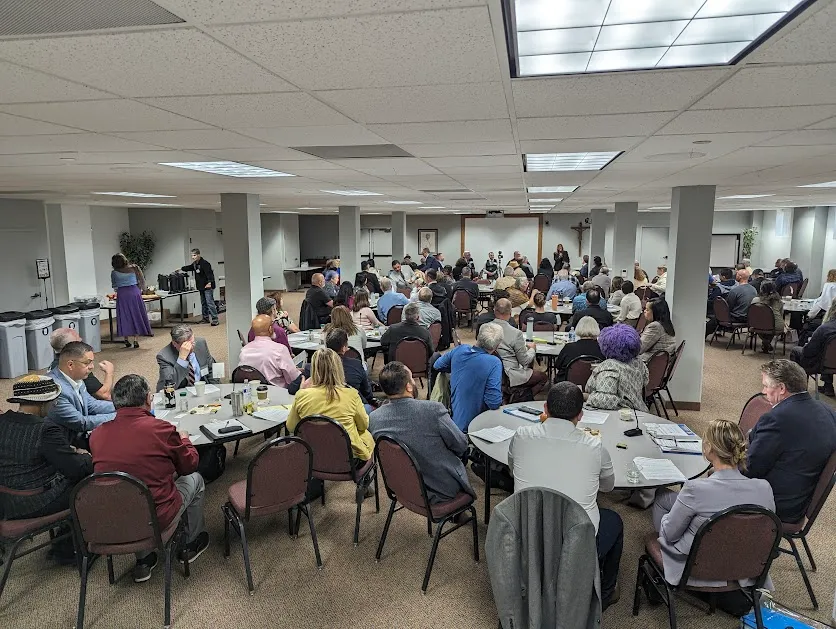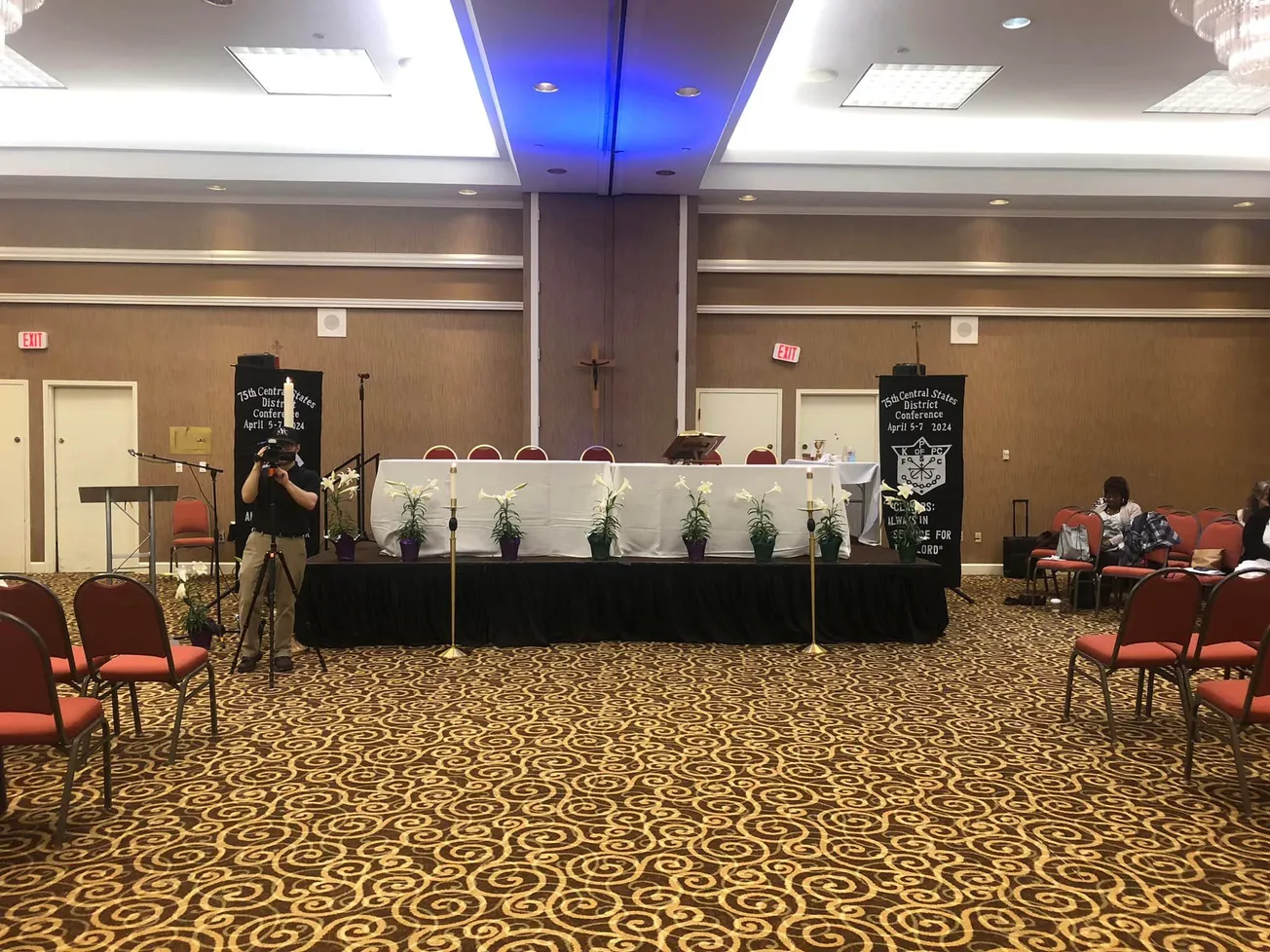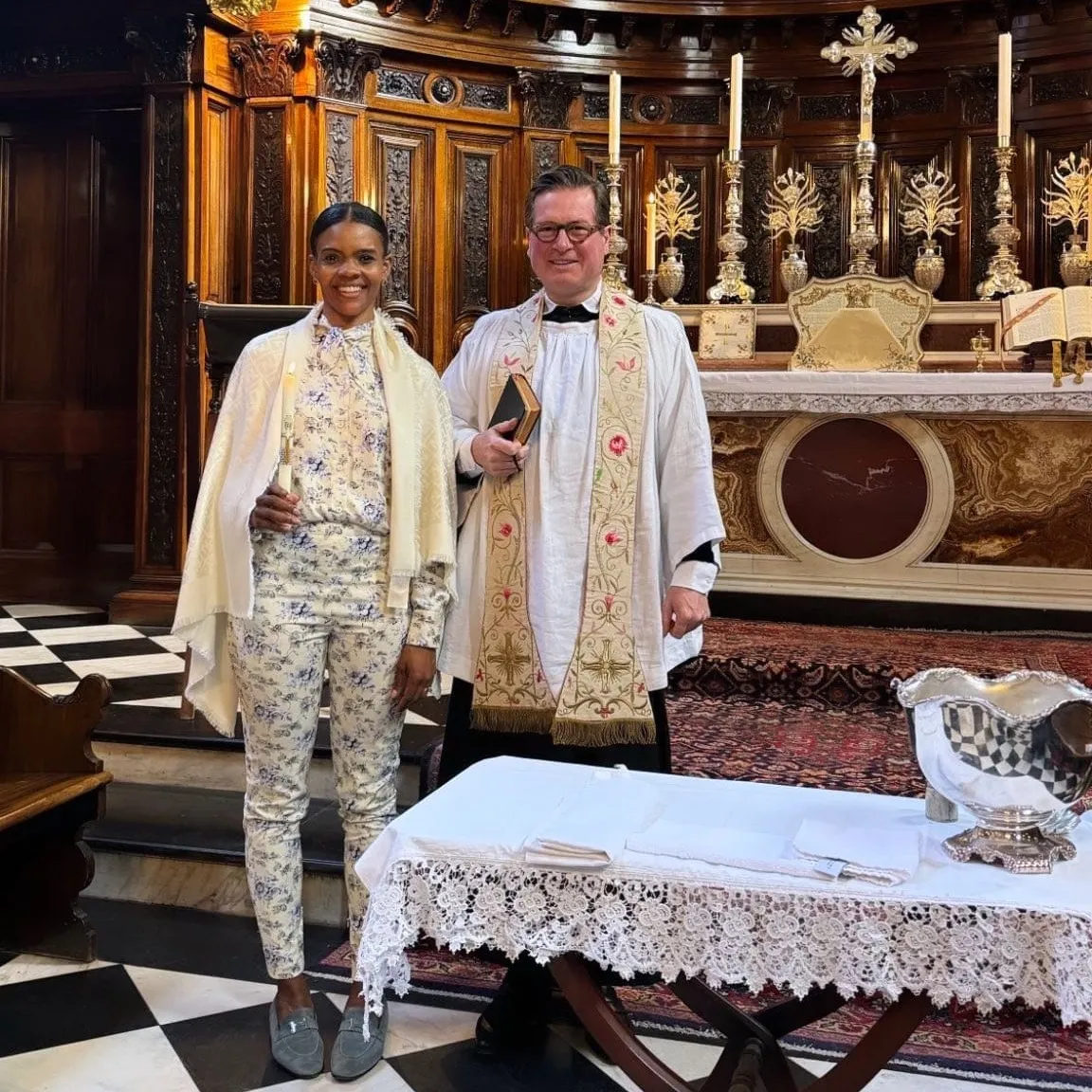More than 300 people gathered virtually on Tuesday to learn how to bring Black young adult Catholics back to the Church.
In November 2023, the leaders of the webinar met in person with other young adults at Xavier University of Louisiana in New Orleans for four days to discuss why many of their peers have chosen to walk away from the faith.
Members were between the ages of 18 and 40, which the U.S. Catholic bishops regard as the young adult age range. The participants in Louisiana also came from various backgrounds, including single, married, divorced, parents, employed, unemployed, and students.
“This is probably the most diverse generation in the history of our country,” said Dr. Ansel Augustine, the webinar facilitator and director of the Office of Black Catholics for the Archdiocese of New Orleans. “What they’ve experienced, what they’ve endured, and what they continue to look at shapes the way they view life.”
Panelists for the webinar, who helped organize the XULA gathering, included Christian Bentley, a mental health and social justice advocate based in Alexandria, Virginia; James Conway, a social justice advocate in Baltimore; Rudy Dehaney, another Baltimore native and the chairperson of the anti-racism project team for the National Federation for Catholic Youth Ministry; and Ali Mumbach, a Houston native and the assistant Catholic campus minister at Howard University in Washington.
The virtual event was sponsored by the Black and Indian Mission Office, the Knights of Peter Claver and Ladies Auxiliary, the Catholic Campaign for Human Development, XULA’s campus ministry, and the Office of Black Catholic Ministries for the Archdiocese of New Orleans. A grant was also received from the National Conversation on Shared Parish Life at Loyola Marymount University.
Augustine described the November gathering as a “pastoral exercise,” an opportunity to see what is happening in our church. The gathering resulted in a 12-page report on the many reasons why Black young adult Catholics are disaffiliating, and action steps to help reverse the trend.
“The document is not an attack on the church,” said Augustine. “These are people that love the Church, that wanted to share what they see as the issues that need to be addressed.”
Cultural challenges
According to the document, insights from which were shared in the webinar, there is no one reason why Black Catholic young adults are leaving the Catholic faith. According to the Pew Research Center, there are about 3 million Black Catholic adults in the United States—about 4% of the Black population in the country. Only 25% of this group attends a parish where most of the congregation is Black, compared to White Catholics attending majority-White parishes (80%) and Hispanic people attending with their own demographic (67%).
This speaks to a greater issue of cultural representation, which was expressed by the group during the November gathering. A lack of leadership representation, educational resources, and discussions about racism and White Supremacy were also listed as reasons Black young adult Catholics are leaving the faith.
“Black Catholic young adults don’t feel like this is their Church,” said Mumbach. “They don’t see themselves, they don’t see their culture represented or expressed or welcomed in predominantly White Catholic settings, programs or events.”
Wanting the Church to respond to racism and White Supremacy is also rooted in how Black Catholics define themselves as Christians. About 77% of Black Catholic adults believe that opposing racism is essential to their faith.
The Church teaches that racism is a sin and a life issue. But because the institutional and systemic racial injustices of our nation are considered a political conversation, the Church tends to shy away from talking about these issues, explained Mumbach.
“I think young Black people won’t tolerate not talking about it,” she said.
Political polarization and culture wars were also issues for Black Catholic young adults. As teaching Black history and banning books becomes a political issue, the Church’s lack of a response can be frustrating.
“We find ourselves in the middle of it. Being Black is [seen as] a political topic, which is crazy because it’s just our identity,” Bentley said. “When the Church doesn’t openly and outrightly reject that rhetoric, no matter what the tone of that is, it makes me and others like me feel isolated.”
Comprehensive social justice teaching, faith-based diversity training, and more Black Catholics in leadership positions of the Church were listed in the report as action steps to combat these issues, with implementation expected to take 1-5 years.
The generational and educational divide
For Black Catholics who are or were members of Black parishes, differences with older generations are a major deterrent for young adults.
“[Young adults] feel like it is the church of their parents and their grandparents and their elders,” said Mumbach. “They plan everything, they lead everything—so it seems like it’s their church.”
While they are very grateful for the contributions and sacrifice of older generations, “Black Catholic young adults haven’t been taught or given roles that would indicate that this is their church as well,” she added.
Conway described some of the older generations as being “unfair gatekeepers”: people holding on to positions of power in the parish and being judgmental of young adults.
“Everybody wants to go out into the street and evangelize, but maybe we should start evangelizing within our own families first.”
In addition to mental health stigmas, lack of welcome and discussion on LGBTQ+ issues and Church accountability for clergy actions, education was found to be a major contributing factor to Black Catholic young adults leaving the church.
“We really need to look in our Black Catholic churches and in our spaces and make sure that we are properly educating,” said Bentley. “When it’s so easy for people to reject the church and to walk away, there can’t be a clear understanding that Jesus Christ is here—in the flesh and in reality.”
Augustine acknowledged that these critiques of Black parishes can be difficult to accept.
“It is challenging when you have to go and look within,” he said, “and sometimes we as a Black Catholic community sometimes struggle to do the looking within to see what we need to do for ourselves.”
However, Dehaney believes the internal work is critical to the process.
“Personal assessments can be the difference between noticing what is wrong and where we can go to solve an issue, and being completely oblivious to a problem,” he said.
Moving forward
Some actions of bringing Black young adults back to church are easy, such as providing free food at events and creating opportunities for Catholics to learn more about their faith and the contributions of Black Catholics to the church.
What will take time and effort from every faith community is engaging with young adult Black Catholics, building their trust, and finding ways for everyone to work together.
Conway encourages older generations to “take the intentional time to help bridge that generational gap so that we can show proper respect to one another.”
Young adults “want to work in our Church, but sometimes that gets mistranslated in that we don’t want to work with our elders, and there’s no longer a place for them,” said Bentley. “We need trust and accompaniment from our elders.”
At the same time, we have to hold young adults accountable, said Dehaney, noting that “part of the problem is that we’re not organized.”
“[We must] continue to push the agenda we have set forth, continue to add, continue to do things, and continue to organize so that we may speak truth to power and do what is necessary.”
The panel agreed that bringing Black Catholic young adults back requires the Holy Spirit and the work of its people.
“Young people need the Church, and the Church needs young people,” said Mumbach.
“It’s as simple and as complex as ‘what would Jesus do.’”
Samantha Smith is a copy and content writer based in Atlanta. She worked for the Archdiocese of Atlanta for nearly a decade in various roles, including as a staff writer for The Georgia Bulletin, where she won numerous Catholic Press Awards for her writing and social media campaigns. Connect with Samantha by following her Catholic blog, Spirit and Sparkle, and her Twitter/X at @BeimaxCreates.


